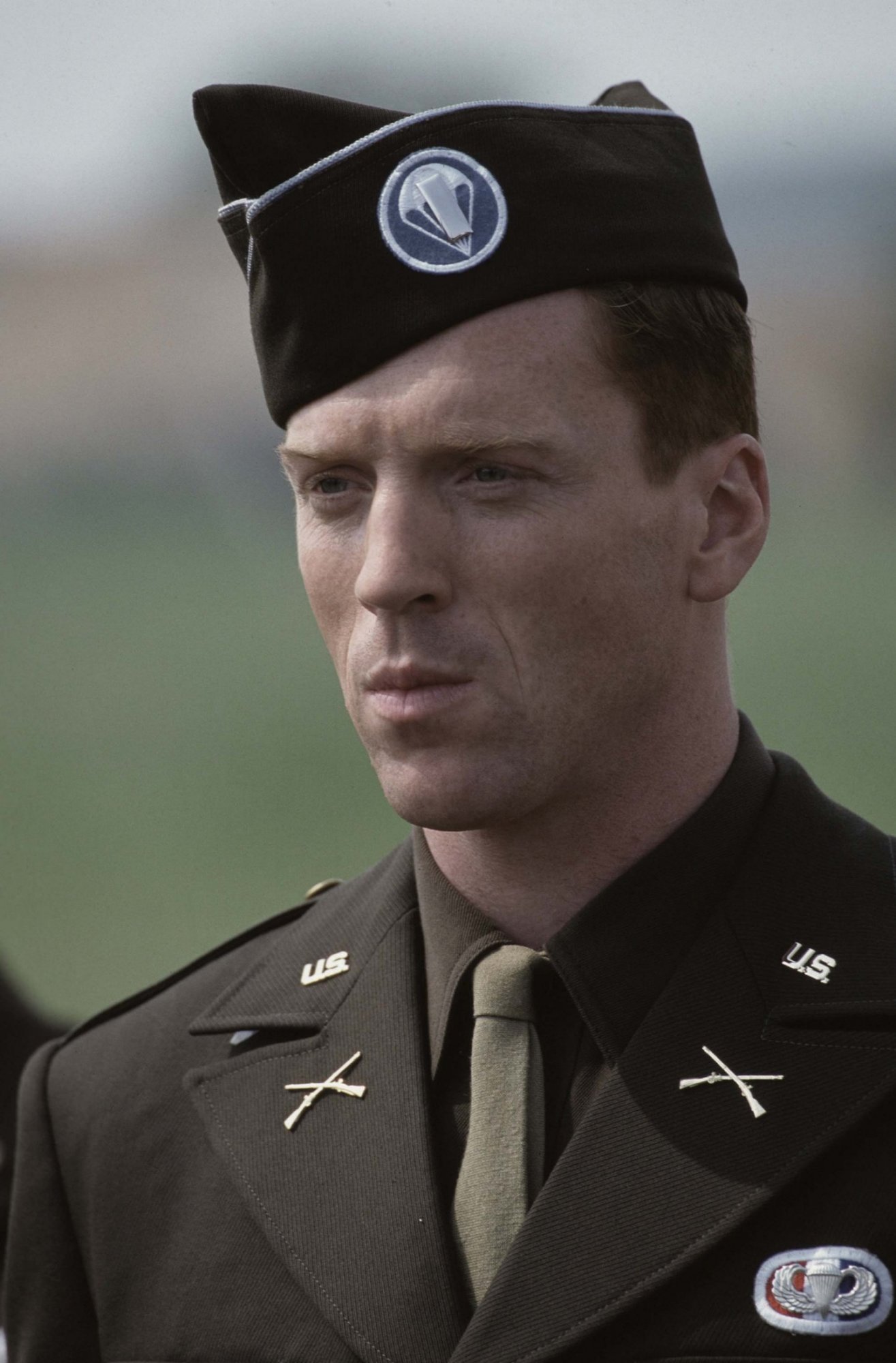 He survived the trip down to the ground. That, in and of itself, was something to marvel at – but there was no time. He was separated from the rest of Easy Company. He had no weapon except his jump knife. He was certain he was surrounded by enemy troops. And he had a mission to accomplish.
He survived the trip down to the ground. That, in and of itself, was something to marvel at – but there was no time. He was separated from the rest of Easy Company. He had no weapon except his jump knife. He was certain he was surrounded by enemy troops. And he had a mission to accomplish.
He came across other paratroopers – sometimes one by one, sometimes in groups of three or more. He quickly assembled a reasonable fighting force.
As he took a moment to consult his silken map of the Cherbourg Peninsula, he worked out where they were and which direction to go.
Putting his map away, he looked at the men looking expectantly at him – with not a little fear in their eyes – and said, “Follow me.”
Richard D. Winters – at the time a Lieutenant in the United States Army – was a man of character and integrity who did his best to get done what he was called upon to do.
And like so many of the other 2.6 million men who answered their country’s call to defend liberty and freedom, Richard Winters did it to the best of ability and training.
But there was something else. Something more. He was a leader of men sent to a foreign land to do a very difficult job. And when those men looked into his eyes and heard him say, “Follow me” they did. Without question, without doubt.
But Dick Winters exhibited this leadership quality best in Holland in September of 1944. He and the rest of Easy Company were crouched low on the edge of a field. A dike was on the other side. Lots of open space – or more accurately killing field – for any enemy soldier that happened to climb on top of the dike and look their way. Winters told his men to wait for the signal – which would be red smoke - and then charge across the field, climb the dike, and engage the enemy.
Winters did not order his men to do this while he stayed behind. He didn’t gather his senior NCO’s, tell them the plan, and then wait in the rear for the results. He was crouched alongside of them. He held the canister that would – when activated – give the signal. He then pulled the pin, tossed the canister, rose up and started running across the field. It took a few seconds for the smoke to appear. His men – good soldiers – did as they were told. They waited for the red smoke. By the time they got the signal and started sprinting across the field, Winters was dozens of yards ahead of them.
Dick Winters led from the front. He told his men, “Follow me” and then took off, leading the way.
That’s the kind of leader men and women will follow. A leader who leads from the front.
On January 2, 2011, Richard Winters died at his home in Pennsylvania at the age of  92. He was a quiet leader of men, never looking for glory or chasing fame and fortune. Few would ever have even heard of Richard Winters had it not been for Stephen Ambrose, who wrote the book Band of Brothers, for Steven Spielberg and Tom Hanks who produced the mini-series based on the book, and actor Damian Lewis who portrayed him in the mini-series.
92. He was a quiet leader of men, never looking for glory or chasing fame and fortune. Few would ever have even heard of Richard Winters had it not been for Stephen Ambrose, who wrote the book Band of Brothers, for Steven Spielberg and Tom Hanks who produced the mini-series based on the book, and actor Damian Lewis who portrayed him in the mini-series.
In the HBO series, he recalled a question that a fellow veteran was asked by his grandson - which also sums up the character of Richard Winters: " 'Grandpa, were you a hero in the war?' Grandpa said, 'No, but I served in a company of heroes.' "
Richard Winters also said, upon completion of his own memoirs: " 'Wars don't make men and women great. But it sometimes takes wars to bring out the greatness in men and women.' "
During a quiet moment on the evening of June 6, 1944, Richard Winters said that he prayed to God. "If somehow I manage to get home again, I promised God and myself that I would find a quiet piece of land someplace and spend the rest of my life in peace."
This is exactly what this leader of men did. After the war he married and bought a farm outside Hershey, Pa., where he spent the rest of his life.
Richard Winters no longer walks among us. But he still can inspire us to say, “Follow me” and then lead from the front.

No comments:
Post a Comment